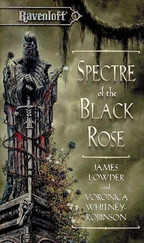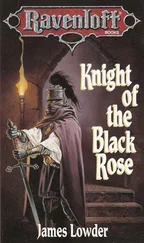Travis’s hands leapt to his throat as he scrabbled at the wire, his legs thrashing beneath him, his throat making an inhuman gurgling noise. Two dark shapes materialised out of the shadows as he struggled and a third man dropped down noiselessly from where he had hidden himself in the roof space above the ceiling tiles.
One of the men pulled a chair over from the wall and positioned it under Travis’s flailing legs. Travis located the top of the chair with his feet and, wavering unsteadily, found that he was just about able to perch on tiptoe and relieve the choking pressure on his throat, his lungs gasping for air, blood on his collar where the noose had bitten into the soft folds of his neck.
Teetering, his mouth dry with fear, he watched as the three figures, each masked and dressed in black, approached the left-hand display cabinet. Working with well-drilled efficiency, they unscrewed the frame, levered the glass out and leant it against the wall. Then the man in the middle reached in, took out one of the Enigma machines, and placed it in his accomplice’s backpack.
Travis tried to speak, tried to ask them what the hell they thought they were doing, to point out that there was no way they were ever going to make it off the base, but all that came was a series of choked grunts and whispered moans.
The noise, though, made the men turn. One broke away from the others and approached Travis.
‘Did you say something, nigger?’
The voice was thin and mocking, the last word said slowly and deliberately. Travis shook his head, knowing that these were not people to be reasoned with, although his eyes burned with anger at the insult.
The man didn’t seem to be expecting an answer. Instead he kicked out and knocked the chair from under Travis, who plunged towards the floor, the steel wire twanging under tension and snapping his neck.
For a few seconds Travis’s feet drummed furiously, then twitched a few times, then were still.
Clerkenwell, London
3rd January – 5.02 p.m.
Tom was sitting at his desk with a copy of The Times in front of him, folded into four so that only the cryptic crossword was visible. He had a ballpoint pen in his mouth, the end chipped and split where he had chewed it, his forehead creased in concentration. Much to his frustration, he hadn’t filled in a single word yet.
The desk itself was French, circa 1890, solid mahogany carved with fruit, foliage and various mythological creatures. It had four drawers on the left and a cabinet on the right, each opened by a lion-mask handle. Caryatids and atlantes flanked the corners, supporting the overhang of the polished top.
Tom and Archie had bought the desk not for its rather obvious beauty, but because it was identical on both sides, a subtly symbolic statement of equality that had resonated with the two of them. And despite occasionally feeling like one half of some odd Dickensian legal couple, for Tom, at least, the desk had come to encapsulate his new life – a solid partnership on the right side of the law.
There was a knock at the door.
‘Yeah?’ Tom called, grateful for the interruption. He had been staring at the paper so long that the clues had started to swim across the page.
The door opened and a woman wearing jeans, a pale pink camisole and a tight black jacket walked in, her right arm looped through the open visor of a black motorcycle helmet.
‘Catch,’ she called.
Tom looked up just in time to see a tennis ball flashing towards his head. Without thinking, he shot a hand out and snatched it from the air, his fingers stinging as they closed around it.
‘How was your game?’ Tom asked with a smile as Dominique de Lecourt stripped off her jacket, hitched herself up on to the side of his desk and placed her helmet down next to her. She had a pale, oval face that had something of the cold, sculpted and remote beauty of a silent-movie star, although her blue eyes, in contrast, shone with an immediately inviting blend of impulsive energy and infectious confidence. Her right shoulder was covered with an elaborate tattoo of a rearing horse that was only partially masked by her curling mass of blonde hair. Her left arm, meanwhile, was sheathed in a glittering armour of silver bangles that clinked like a hundred tiny bells every time she moved. Just about visible, under her top, was the bump of her stomach piercing.
‘Didn’t play. Decided to go to that auction instead.’
‘I knew you wouldn’t be able to resist,’ Tom laughed. ‘See anything good?’
‘A pair of Louis XV porphyry and gilt-bronze two-handled vases.’ Her English was excellent, with just a hint of a Swiss-French accent.
‘Made by Ennemond-Alexandre Petitot in 1760.’ Tom nodded. ‘Yeah, I saw those in the catalogue. What did you think?’
‘I think two million is a lot to pay for a couple of nineteenth-century reproductions made for the Paris tourist market of the day. They’re worth twenty thousand at most. It’s a law suit waiting to happen.’
Tom smiled. Sometimes he found it hard to believe that Dominique was still only twenty-three. She had an instinct for a deal, coupled with a sponge-like ability to retain even the most incidental detail, that rivalled all but the most seasoned pros. Then again, Tom reminded himself, she’d had a good teacher. Until he died last year, she’d spent four years working for Tom’s father in Geneva. When Tom had relocated the antiques dealership to London, she’d readily accepted his offer to move with it and help run the business.
The antiques shop itself was a wide double-fronted space with large arched windows, vital for attracting passing trade, although most visitors to Kirk Duval Fine Art & Antiques called ahead for an appointment. At the rear were two doors and a staircase. The staircase led to the upstairs floors, the first floor currently empty, the second floor Dominique’s apartment, the top floor Tom’s. It was supposed to have been a short-term arrangement, but the weeks had turned into months. Tom hadn’t pressed the point, sensing that she would move out when the time was right for her. Besides, he valued her company and, given his pathological inability to form new friendships, that gave him his own selfish reasons for keeping her around.
The left-hand door opened on to a warehouse accessed via an old spiral staircase while the right-hand door gave on to the office. The office was not a big room, perhaps fifteen feet square, the space dominated by the partners’ desk. There was a single, large window which looked out over the warehouse below, a low bookcase running underneath it. Two comfortable armchairs were positioned on the left-hand side of the room as you went in, the brown leather faded and soft with age. Most striking, though, was the wall space behind the desk, which was taken up with Tom’s glittering collection of safe plates – an assortment of brass and iron plaques in various shapes and sizes, some dating back to the late eighteenth century, each ornately engraved with the safe manufacturer’s name and crest.
‘How are you getting on with the crossword?’ she asked with a smile, peering down at the unfilled grid in front of him. ‘Any easier?’
‘Not really,’ he admitted. ‘I mean, take this: “Soldier got into cover for a spell.” Five letters.’ He shook his head. ‘I just don’t see it.’
‘Magic,’ she answered after a few seconds thought.
‘Magic,’ Tom repeated slowly. ‘Why magic?’
‘A soldier is a GI,’ she explained. ‘A cover is a Mac. Put GI into Mac to get a spell. Magic.’
She tapped her long, graceful finger playfully on the tip of Tom’s nose as if it was a wand.
‘I give up.’ Tom, defeated, threw his pen down on to the desk.
Читать дальше












